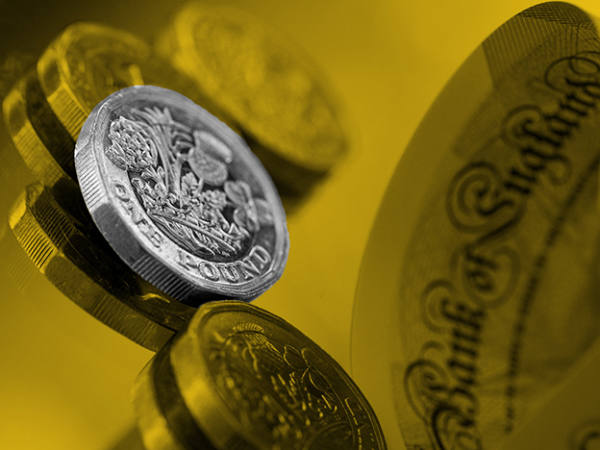Weekend press chatter has put BT (BT.A) shares firmly in the spotlight. The shares are undoubtedly cheap but that doesn’t mean they are going to recover any time soon.
BT is in a big mess. Some of this is of its own making but regulatory and competitive threats along with a legacy pension fund problem make it hard for the company to grow and increase the value of its business.
How did BT get here?
BT’s biggest problem is the one that faces the rest of the telecoms industry. The bulk of its business is based around selling a commoditised product which is falling in price and demand. Trying to sell value added products such as high speed broadband and mobile data requires massive investment and is not without risk, and may in time become a commodity product as well.
For many years, BT’s strategy has been to grow profits and cash flows by slashing costs just as many network utilities have done for some time. It has made many strategic mistakes such as selling its mobile business in the early 2000s and then spending big money to get back into the industry by buying EE in 2016. Its Global Services business which sells IT and network services to companies, has been a disaster and is not making enough money to justify the investment in it.
Elsewhere, its corporate and wholesale business has been under huge competitive pressure as companies that used to buy telecom products from BT are now providing them themselves by accessing BT’s network.
BT’s consumer division has been driven by cost cuts in the absence of meaningful revenue growth. The likes of Sky have tried to poach many of its telecom and broadband customers by offering bundled packages. This led BT to turn itself into a sports broadcaster, spending billions on rights to screen Premier League and European football as well as other high profile sports such as Rugby Union and Moto GP.
If the profits of BT’s Consumer division are anything to go by then this has been a very expensive way of defending its core broadband business. If the extra profits and cost savings from buying EE in 2016 are ignored, then BT’s Consumer profits have made little – if any – progress in recent years.
This problem is not going to go away anytime soon. Covid-19 has seen customers being given credits for the time no sport was being broadcast which will reduce profits this year, while the company is still committed to spend at least £2.4bn on broadcast rights in the future.
If we just look at some of BT’s key financials - operating profit, free cash flow and ROCE – it is a business that seems to be heading rapidly in the wrong direction.
Debt levels are high but at the moment not overly so as BT’s operating profit can pay the interest bill more than 4 times. The pension deficit that has plagued the company for years and seen it have to make billions of pounds of top up payments is currently at a more comfortable £1.1bn but the liabilities of the fund remain massive at £54 billion and need to support pension payments to current and future BT pensioners of £2.5bn-£3bn a year for a few years yet. It still has the potential to become a big headache for BT shareholders.
All these issues are very well known and understood by many investors and largely explain why BT shares are so unloved right now.
Is Openreach being significantly undervalued by the stock market?
The one part of BT that is seen as a potential saviour for the shares is its Openreach infrastructure business. Some speculate whether it could interest infrastructure investors and private equity groups.
Openreach owns and operates a big nationwide telecom network consisting of things such as copper cables, fibre-optic cables, ducts (pipes and tubes that carry all the cables), switching equipment and lots of local telephone exchanges. At the end of March 2020, this had an asset value of £14.4 billion according to Openreach’s regulatory financial statements.
The main bull case for BT shares at their current depressed levels is that Openreach is significantly undervalued by the stock market. It might be argued that its ability to grow the value of its assets (by investing in full fibre broadband) and the scope for further cost savings should see it valued more like a water company or electricity network business where valuations can be at a sizeable premium (more than 20 per cent) to the underlying asset value.
This is possible but Openreach is not exactly the same as a water or electricity network and is arguably more risky. Openreach needs to come to an agreement with its regulator OFCOM on how much money it can charge customers to access high speed fibre broadband services with download speeds of more than 300 megabits per second (Mbps).
BT is also arguably having to face up to having milked Openreach for cash in recent years and attempted to provide high speed broadband on the cheap by squeezing as much as it can out of its old copper network. To be fair, what it has done is very impressive with its G.Fast technology capable of 300 Mbps.
BT now knows that it has come to the end of the road with this strategy and that OFCOM and the government won’t accept it. As a result, Openreach’s investment spending (capex) has been rising significantly and is expected to keep on doing so. This is turning it from a cash cow to possibly a cash consumer in the next couple of years.
Using the segmental notes to BT’s annual report, you can calculate a proxy for the free cash flow that has been generated by Openreach by taking its EBITDA and subtracting capex.
Between 2013 and 2015, Openreach was spending less than its annual depreciation expense on capex which meant that EBITDA less capex was more than its operating profit. This has now reversed as capex has surged to invest in new fibre to the premises (FTTP) assets which are increasingly all fibre rather than relying on copper for the last bit to the customer’s premises.
Openreach has currently passed 2.6m premises with FTTP and wants to reach 20m by the mid to late 2020s. At an average cost of £300-£400 property this is going to cost it between £5.2bn and £7bn and it needs the cash flows to pay for it and earn a decent return on investment on it.
At the moment, OFCOM is proposing that basic broadband pricing (download speeds of less than 40 Mbps) can increase in line with inflation so that it can generate the cashflows to fund the necessary investment. Openreach also has complete pricing freedom in faster broadband products.
The tricky bit is the allowed return on this investment. BT wants to earn 10-12 per cent per year on it in terms of operating profits but OFCOM thinks the core network should only get 8 per cent before tax with a bit more for full fibre and rural broadband. If Openreach gets the return it needs then there is scope for some decent profit growth and eventually free cash flow growth but this is not as straightforward as it seems.
This is because Openreach is competing with other full fibre network providers such as Virgin and newer entrants to the market such as City Fibre, Hyperoptic and Gigaclear. There is no guarantee that spending money on a brand new full fibre network will see Openreach get enough paying customers so that the investment pays off. Alternatively, customers may choose another network provider. Virgin can already reach 15m households and wants to expand this number.
It is this investment risk which makes Openreach and the value of it a little bit different to valuing a water company or electricity distribution or transmission network which face no competition.
As for who might buy it. Well, the high investment requirements that are needed to preserve the company’s competitive position mean that it is not a business that can be leveraged up and run for cash as a financial buyer might wish to do but private infrastructure companies will probably be interested if the returns are high enough.
Given the current focus on the security of national infrastructure assets, a bid for BT looks difficult right now. In many ways, it is down to BT to sort itself out and create a new strategy that investors can get behind.
It must be prepared to be radical and the low share price – and the low expectations that come with it – gives it a chance to do something positive and create some upside. It could be along the lines of closing or selling Global Services, closing down BT Sport and selling off its rights, and spinning off Openreach. This is likely to be messy but if done well could give BT a chance to raise fresh equity, pay down debt and create an improved investment case at the same time.
The shares are very cheap
There’s a lot of risk with this company and it needs a helping hand from the regulator and an ability to fight off competition but looking at the value of BT shares right now, it’s hard not to think that they are very cheap.
I am coming at this on the basis of applying a value to Openreach and seeing what the rest of BT is being valued at using its reported profits and debts in the year to March 2020 which I see as a basis for normal business conditions.
BT valuation
BT valuation | £m |
Market cap @ 109p | 9917 |
Net debt | 24345 |
Pension deficit | 1140 |
Enterprise value | 35402 |
Less: Openreach at asset value | -14400 |
Implied EV for remaining BT | 21002 |
Remaining op profit excl Openreach | 2465 |
EV/Ebit | 8.5 |
Ebut yield | 11.7% |
EV of remaining BT if Openreach 25% premium to Asset Value | 17402 |
EV/EBIT | 7.1 |
EBIT yield | 14.2% |
Source:Annual Reports/Investors Chronicle
Valuing Openreach at its asset value puts the rest of BT on an EV.EBIT multiple of 8.5 times or a yield of 11.7 per cent. Being more aggressive with the value of Openreach and putting it on a standalone valuation which is a chunky premium to asset value shows that the rest of BT is cheaper still. Realising the upside is altogether a more difficult matter but it is a share that should interest patient value investors.














